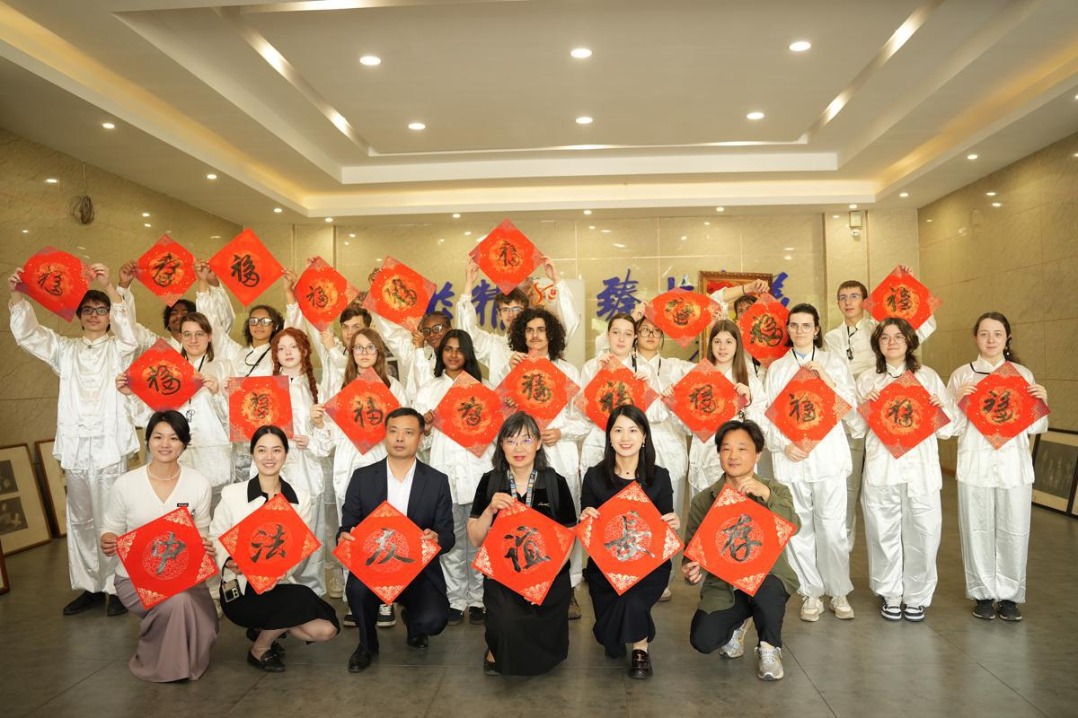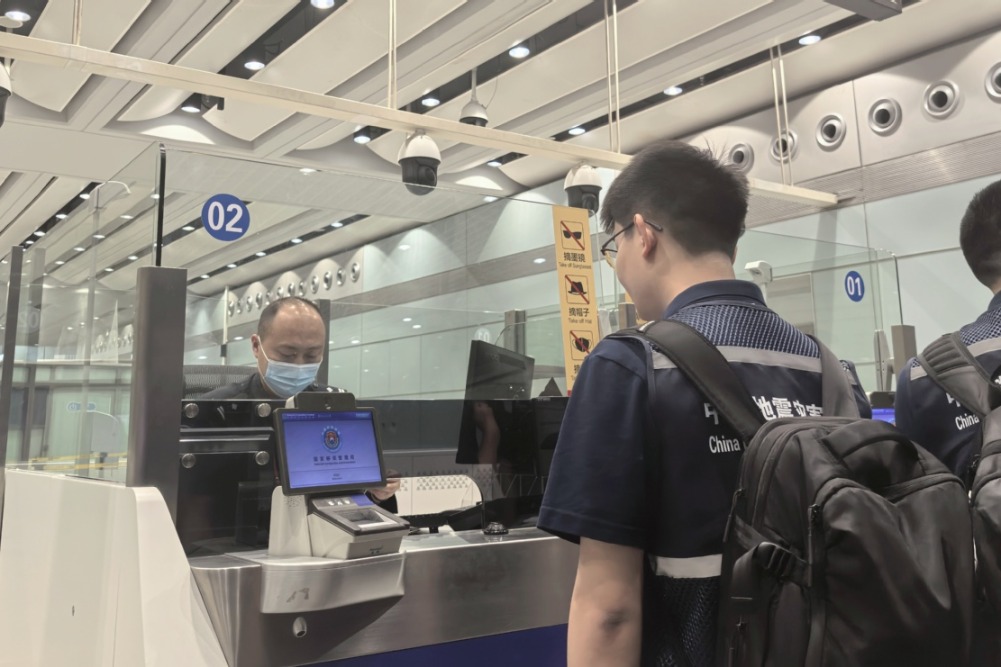Robots revolutionize spring tea harvest in East China

HANGZHOU -- This year's Longjing tea harvest has been slightly delayed due to a cooler than average spring in East China. However, tea connoisseurs can still look forward to reveling in the aroma of spring tea without much delay, thanks to an innovative addition to the traditional tea-picking workforce, namely robots.
Longjing tea, named after the village of Longjing near West Lake in Hangzhou, East China's Zhejiang province, is renowned for its lustrous green color, enticing fragrance, mellow taste and beautiful shape. Notably in late 2022, China's traditional tea-making was inscribed on the UNESCO intangible cultural heritage list.
Traditionally, the picking of high-quality tea leaves in China has been very dependent on manual work. Skilled pickers can identify and pluck the tenderest leaves, which contain rich nutritional components and aroma, while avoiding bruising and damaging the leaves. Another major reason for this heavy traditional reliance on human labor, is that many tea farms are located in hilly areas, where mechanized equipment had proven to be either impractical or unavailable.
However, an alarming fact is that the average age of tea pickers in Longjing's premium production area is now 65 — with this growing labor shortage increasingly challenging the viability of reliance on traditional manual picking.
Tea buds and leaves do not ripen at the same time, even on the same branch. In early spring, they are typically about 2 centimeters long, with petioles just a few millimeters in length.
"New growth looks very similar to older leaves, making it difficult to distinguish between immature and ready-to-pick tea leaves," said Jia Jiangming, an associate professor at Zhejiang Sci-Tech University.
This year, robots have joined the ranks of tea pickers to tackle the challenge. Similar to skilled human pickers who rely on experience, these mechanical assistants use artificial intelligence (AI) to automatically identify tea buds and leaves through vast amounts of image data.
According to Chen Jianneng, head of the institute of agricultural machinery at Zhejiang Sci-Tech University, the latest version of these machines can handle the workload of 1.5 human workers. The university is also collaborating with the Tea Research Institute of the Chinese Academy of Agricultural Sciences to develop tea varieties better suited for mechanical harvesting.
"Our robotic arms mimic the gentle and precise techniques of human pickers — minimizing damage to the tea leaves and the field," said Zhou Yujie, technical director of Hangzhou Aiguorui Intelligent Technology Co Ltd.
Noting that the company has reduced the cost of robotic arms from around 100,000 yuan (about $13,873) to under 10,000 yuan and cut the weight of the robotic arms from 85 kilograms to 22 kilograms, Zhou also expressed hope that these robots will eventually adapt to different types of terrain and speed up operations.
Innovative technologies are transforming tea cultivation and harvesting with impressive speed. For example, in a Longjing tea field in Hangzhou, a comprehensive intelligent monitoring station can predict pest trends and monitor meteorological and soil data in real time. This ensures optimal tea plant growth while addressing environmental concerns through rational irrigation and scientific fertilization.
Zhejiang Top Cloud-Agri Technology Co Ltd is using drones to create terrain databases for Longjing tea fields and visually track pesticide spraying, enabling eco-friendly pest control.
"Drones fly twice daily, allowing farmers to monitor tea health and growth via an app. This enables timely maintenance and harvesting," said Pan Ning, a senior expert at the company.
Shao Guozhi, a tea farmer in Longwucha township, one of the core production areas for West Lake Longjing tea, revealed that using drones to transport rapeseed cake fertilizer had made the job much easier.
The drones can move over 3,000 kilograms in a single day, saving time and effort while boosting efficiency, he noted. "Once we finish transporting fertilizer for our own village, we even help out in neighboring tea villages," Shao added.
Fueled by surging demand, the application of AI in agriculture has expanded rapidly in China, highlighting the government's continued efforts to modernize its agricultural sector to accelerate rural revitalization, which profoundly impacts the lives of more than 460 million people in rural areas.
In the "No 1 Central Document" for 2025, Chinese policymakers have, for the first time, identified the development of "new quality productive forces in agriculture" as a top priority. The document underscores the need to increase support for smart agriculture and calls for expanding the use of technologies such as AI, big data and low-altitude systems in agricultural production.
- Robots revolutionize spring tea harvest in East China
- Mainland urges Taiwan businesses to jointly resist external risks, challenges
- Former senior CPC publicity official prosecuted for alleged bribery
- China's top legislator calls for maintaining confidence, leveraging strength
- Yangtze underwater rail tunnel reaches milestone
- China's anti-graft chief urges rigorous study of Party conduct rules



































